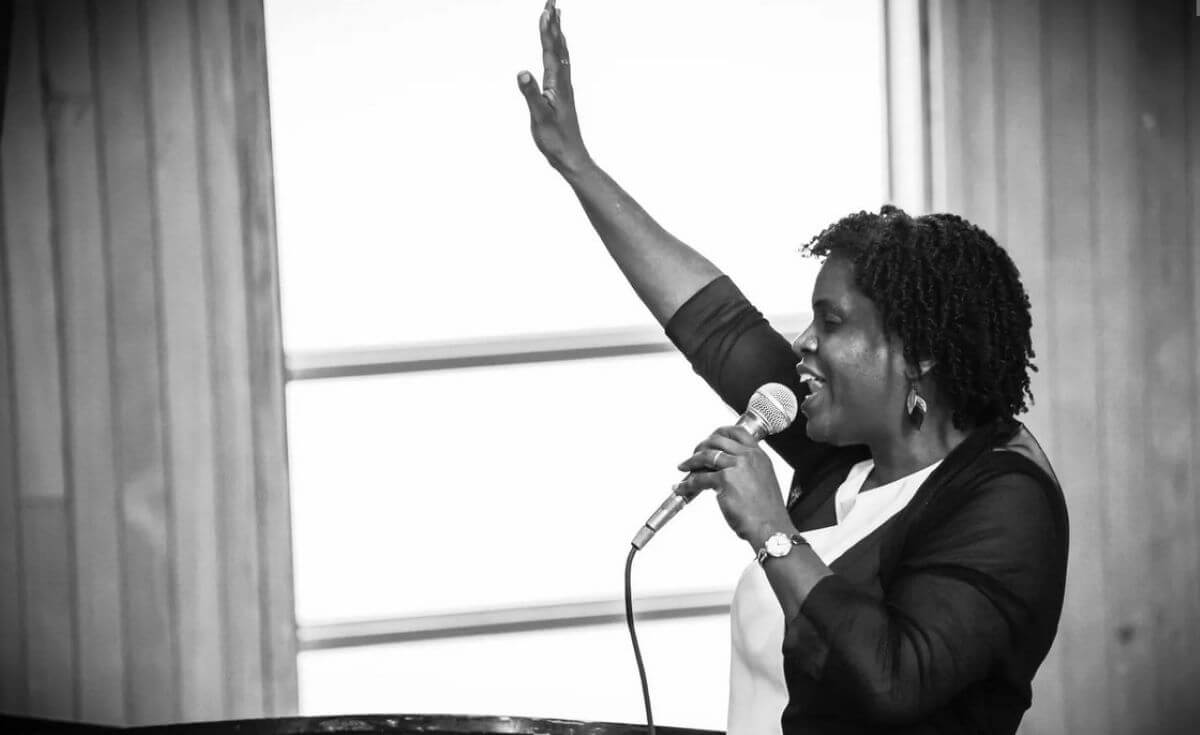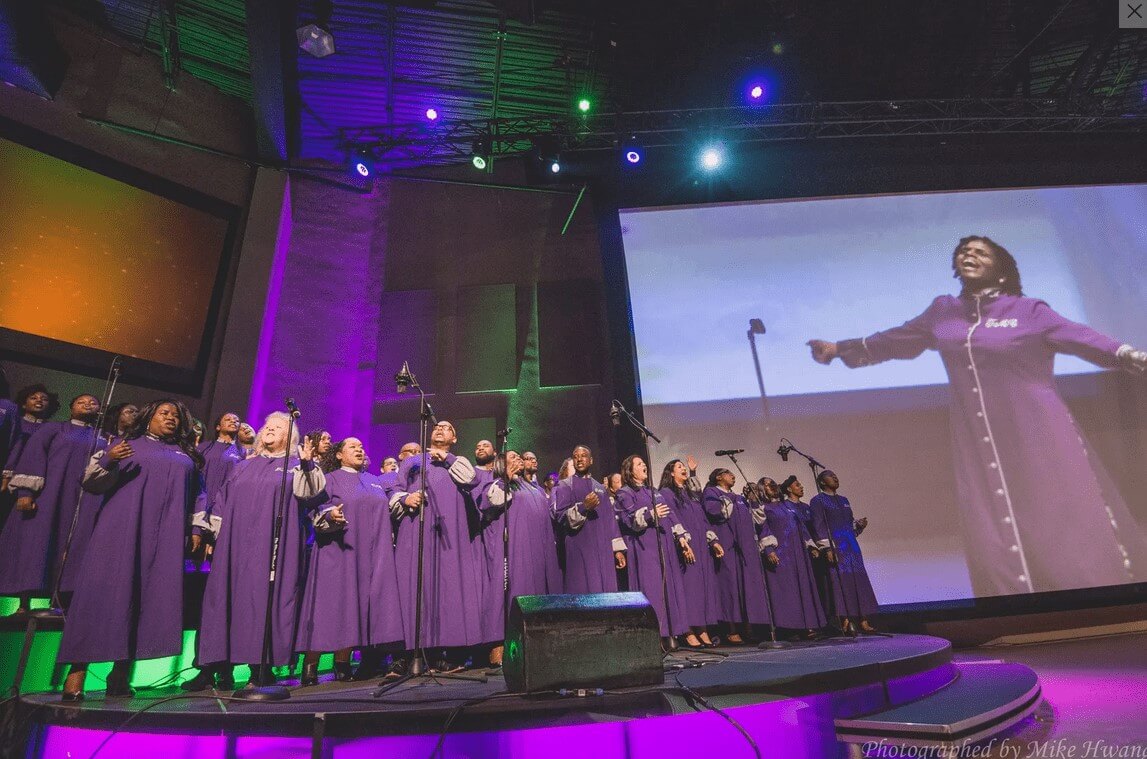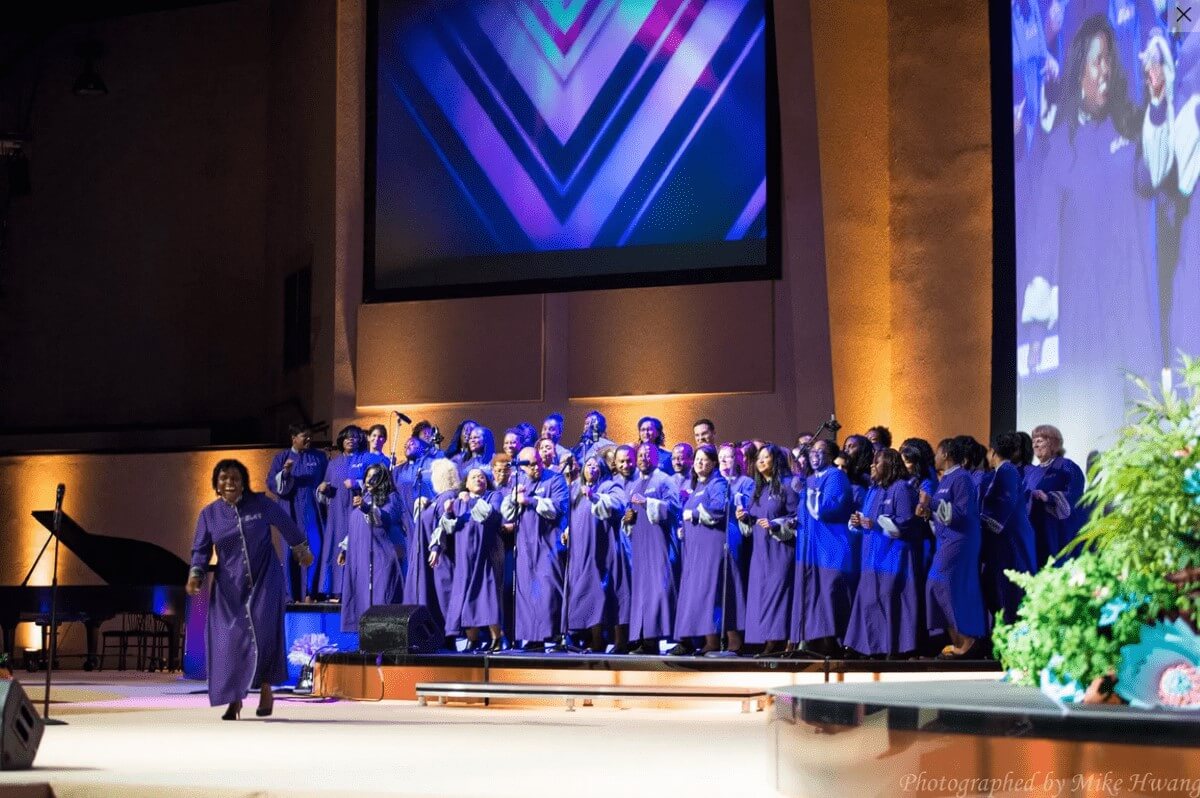
McGill University’s Schulich School of Music launches its series of events marking Black History Month with a free Gospel music workshop this Thursday February 1st. Open to all, the workshop will be led by York University Professor Karen Burke.
LA VERSION FRANÇAISE DE CET ARTICLE EST DISPONIBLE ICI.
La rédaction de Ludwig van Montréal est consciente que la majorité de son lectorat est francophone. Nous avons tout de même jugé à propos de parler de cet atelier, même s’il se déroule en anglais, à cause de sa pertinence dans le cadre du Mois de l’Histoire des Noir.e.s et de l’apport de la musique Gospel dans le monde choral de toutes les langues. Il s’agit également du premier article que Ludwig van Montréal publie à la fois en français et en anglais, parce que le contenu le justifie.
Karen Burke‘s bio, as found on her York University profile, is impressive: « singer, music director, choral conductor and composer in the field of African-American vocal music, an authority on the history and performance practices of Gospel music, she has worked with major choral ensembles and organizations including the Toronto Mendelssohn Choir and Youth Choir, Toronto Choral Society and Ontario Choral Federation, as well as numerous schools and church congregations. In 1988, she co-founded the Juno Award-winning Toronto Mass Choir and continues to serve as their principal director, touring nationally and internationally. »

For Jean-Sébastien Vallée, Associate Professor and Area Coordinator of Choral Studies at the Schulich School of Music, « The power of music, and of Gospel music in particular, is that it creates a feeling of community. Since Gospel music is sung and learned without a score, all are equal in the learning of this music. It makes for an exceptional and authentic artistic and collective experience. »
Pr. Burke has graciously answered a few questions by email for our readers.
LvM: The workshop you are leading at Schulich on February 1st marks the launch of McGill’s Black History Month events. How can learning about Gospel music help non-Black people understand the history of Black people in North America?
KB: Gospel music holds within its ‘DNA, the hopes, and dreams of a people, stolen from but still carrying the cultural characteristics of West Africa including its music. The spirituals that enslaved Africans in North America created, provided them with hope and encouragement, a way to communicate, to pass on secret messages and share their collective dream of freedom. Gospel music holds within it close links to the history of Black people and is one of the most powerful and enduring pathways to understanding it.
LvM: You are an authority on performance practices of Gospel music. How has the performance of this type of music changed over the years?
KB: Gospel music is a relatively ‘new’ genre of music with this term being coined by Thomas Dorsey as recently as the 1930s. At that time, blues music, which also is birthed from spirituals, was the main genre which influenced this early style. While the message and fervor has remained, today, gospel music continues to influence popular music. As blues influenced this new sound in the 30s, reciprocally, the musical trends of today influence the sound of Black gospel music.

LvM: Is there anything non-Black people should be careful of when performing this music?
KB: A conscientious performer of any genre of music that one is unfamiliar with, should learn about its origins, performance aesthetic and cultural history. Honouring the creators and history of gospel music is the best way to ensure that one is doing it justice and helps to avoid unflattering caricatures. Gospel music cannot and should not be performed in a cultural vacuum—please do the work!
The Black gospel community welcomes sincere allies to ensure that this music is not ‘ghettoized’ or relegated to the ‘shadows’. When someone who is not Black makes inquiries because they are concerned about cultural appropriation, then they are already on the right track. Their intentionality will expand their knowledge and result in a more authentic performance.
LvM: The workshop is open to the public free of charge. Do participants have to be able to read music? What audience are you particularly hoping to reach?
KB: Gospel music is very accessible and the spectacle of a gospel choir, especially a large mass choir of 135 voices, is always exciting! This mass choir of students will be supported by a live rhythm section comprised of gospel musicians and gospel vocalists that are active in Montreal’s gospel music scene.
Gospel music is learned by rote so there is no need to be able to read music! Those who have an interest will be energized, uplifted and they will witness and experience the joy of this music. Everyone is welcome!
Those that are part of the gospel community in Montreal are especially invited to come out enjoy gospel choir classics by favourites such as Kirk Franklin and Hezekiah Walker and to raise awareness of the vibrant gospel music community that exists in Montreal.
FEBRUARY 1st, 7:30pm-9:30pm, SCHULICH SCHOOL OF MUSIC DETAILS



